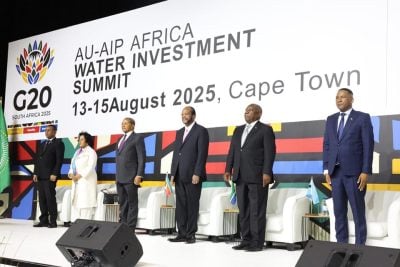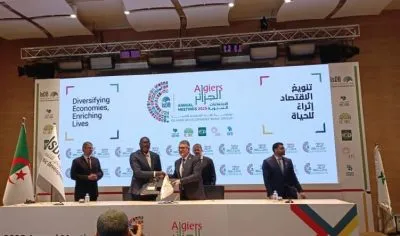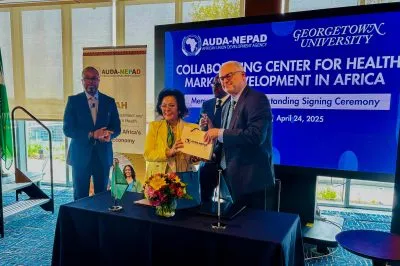Africa Finance Corporation has given its climate ambitions new impetus with the acquisition of 100% of the shares in Africa’s biggest renewable energy company, Lekela Power, by a company in which it is a significant investor – Infinity Power.
The deal has boosted the Nigeria-based multilateral’s footprint in the continent’s green energy sector. Lekela, founded in 2015 and previously owned by private equity investor Actis, currently operates seven wind power projects across three African countries – South Africa, Egypt and Senegal – and has a 1.8 GW project pipeline, which is in various stages of development.
Infinity Power is a joint venture between Egypt’s Infinity and UAE’s Masdar, with AFC and the European Bank for Reconstruction and Development being key shareholders. It was established in 2020 to develop utility-scale and distributed solar energy and wind power projects in Africa, with the aim of improving energy across the continent, thereby boosting economic development and creating jobs.
Samaila Zubairu, AFC President and CEO, said the acquisition of the largest renewable energy asset in Africa was a quantum leap in both the scale and diversity of energy solutions for Africa as the continent transitions to clean power. It has also highlighted the organisation’s commitment to renewable energy in Africa.
The chairman of Infinity Power, Mohamed Ismail Mansour, said the acquisition would boost the company’s goal to install and operate 2 GW of greenfield projects by 2025. “With this transaction, we have delivered on the promise made during COP27 of being the fastest-growing renewable energy company in Africa.
Sameh Shenouda, Executive Director and Chief Investment Officer at AFC, said “We are building a platform of renewable energy projects across Africa, with partners. We now have operational assets of 1.4 GW and our objective is to double that within three to five years to get to 3 GW and eventually attract third party capital. Our assets in South Africa, Egypt and Senegal are all operational and generating cash flows.”
Many investors also still regard Africa as one market, rather than 54 countries, he said. “They don’t understand the diversity. Some countries are difficult to operate in and are not investor-friendly; but others are very large and stable markets, for example, Egypt, South Africa and Kenya.”
And he pointed to the effect of other investments. “The west coast of Africa is gas rich so there is no good reason not to invest in gas. “Africa has 14% of the forests in the world but it is responsible for 40% of global deforestation. The trees are being cut down for cooking, not for mass agricultural projects. We are trying to reduce that by investing in providing LPG to people living close to forests for them to use for cooking instead of cutting down the trees.”
Want to continue reading? Subscribe today.
You've read all your free articles for this month! Subscribe now to enjoy full access to our content.
Digital Monthly
£8.00 / month
Receive full unlimited access to our articles, opinions, podcasts and more.
Digital Yearly
£70.00 / year
Our best value offer - save £26 and gain access to all of our digital content for an entire year!

 Sign in with Google
Sign in with Google 



